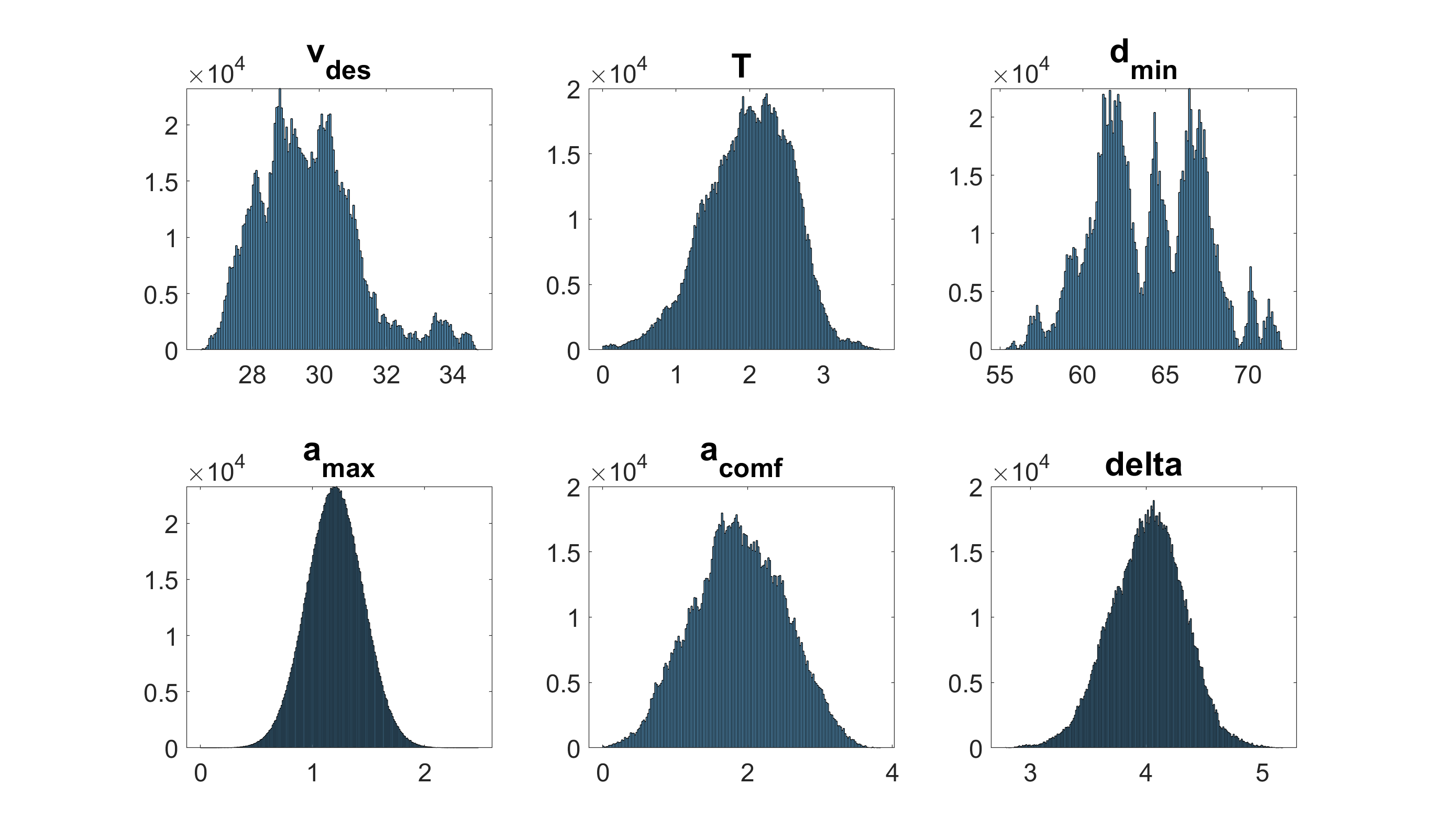SumoGym is a python package to help utilize SUMO as a testing and validation platform for autonomous vehicles without the hassle of creating specific scenarios.
It uses OpenAI Gym to abstract the process of generation and running the simulation environment. There are four specific steps which are inherited from OpenAI gym environment:
env = SumoGym(scenario, choice, delta_t, render_flag)
obs = env.reset()
new_obs, reward, done, info = env.step(action)
env.close()
We also provide some sample route files for two specific scenario types: Highway and Urban. For each scenario type, we have net.xml files which are taken from real maps (e.g. the highway network is around Ann Arbor area). The rou.xml files are populated by vehicles with car-following parameters sampled from naturalistic distributions as shown in figure below:

The paper accompanying the code is given in arXiv link.
The main branch contains the docker implementation of the sumo_gym.
Ubuntu 20.04
-
Under the directory of sumo_gym_docker, build the image with
docker build --tag sumo-docker . -
Run the image with
docker run -it --rm --env="DISPLAY" --volume="/tmp/.X11-unix:/tmp/.X11-unix:rw" --ipc=host sumo-docker bash
- Run the sumo_gym test file
python3 sumogym_tester.py
https://github.com/bogaotory/docker-sumo
If installing in Windows, the sumo-gui implementation will not work due to a package issue. So render_flag needs to be false.